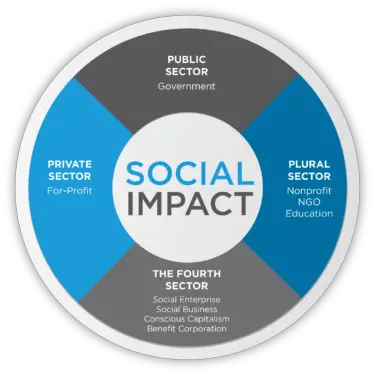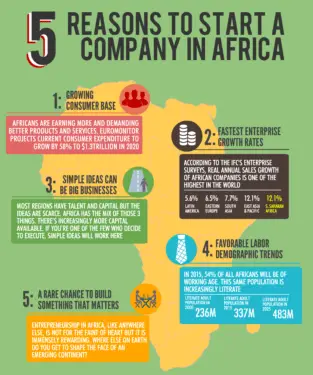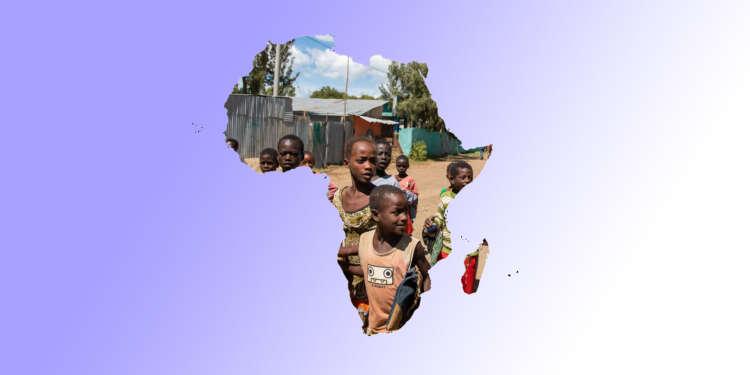In a few months, COVID-19 has disrupted our lives, and we are yet to grasp the full extent of it. While the pandemic is global, it exposes current inequalities in Africa: the biggest impact will be on the most fragile countries – as well as on the impoverished, the uninsured, and the information-poor. Beyond the number of infections, deaths, jobs lost and the hit on national economies, COVID-19 will trigger a surge in extreme poverty on the African continent. Various studies have already predicted that an additional 12 million Africans will be pushed below the threshold of living with an income of less than USD 1.9 per day.
While it is easy to dwell on the challenges faced in an unexpected year like 2020, true entrepreneurs have a natural gift to focus on solutions, take action and find a silver lining to the crisis. Specifically, social entrepreneurs have a vital role to build the resilient, equitable and sustainable post-COVID Africa that we have started to imagine.

You may be wondering who social entrepreneurs are. This “rare breed” of entrepreneurs, still often unknown in spite of the rapid growth of the sector in Africa and beyond, combines a passion and commitment for long-lasting social change with the ability to find opportunities for innovation. In the midst of the crisis, many of them have taken additional risks despite their relatively small structures, have pivoted their models to continue delivering value to their clients or beneficiaries often by adopting new technology solutions, typically people at risk and groups highly vulnerable to a crisis in terms of health or income.
Social entrepreneurs are tackling chronic social problems ranging from access to healthcare and education, economic resilience to transparency or fighting fake news. Some examples particularly relevant as they address some of the problems triggered by the crisis include:
- In South Africa, the Maharishi Institute that provides quality tertiary and has enabled over 17 000 people from disadvantaged background to access employment (97% of graduated have found employment) has closely worked with the Ministry of Education since the beginning of the crisis and started to develop a Pan-African model-based online learning.
- In Zambia, as the global supply chains for essential products have been affected by the crisis, the Safe Motherhood Alliance is on a mission to manufacture and distribute 30,000 Personal Protective Equipment (PPE) for traditional birth attendants and pregnant women, using 3-D printing.
- In Cameroon, Bridge Africa Ventures is bridging the digital divide that excludes small-sized producers from the benefits of digital infrastructure especially as markets have been disrupted. They are on a mission to enable 10 000 SMEs and agriculture players to make a living online, using the online marketplace and direct payment systems.
- In Uganda, COBATI has developed a community-based tourism approach that allows people to use their culture and livelihoods to benefit from tourism. In times of COVID, they have been actively building awareness about safe behavior in communities.

Ashoka is one of the largest organizations supporting social entrepreneurs in the world and can be credited for the development of the sector over the last decades after our Founder coined the term “social entrepreneur” in the early 80ies. Our network includes over 420 social entrepreneurs who have improved the lives of over 18 million people in over 23 countries of Sub-Saharan Africa. They have changed national policies and designed new models replicated by others, as their growth strategy is based on people positively impacted rather than revenues or profit. (https://pragermetis.com/)
While social entrepreneurs have been an inspiration during the crisis thanks to their leadership and creativity, most of them have also been significantly affected by the lockdown and the crisis. Based on an internal Ashoka study, 53% of social entrepreneurs anticipate a funding shortfall of over 40% this year. 33% are very concerned that funding is becoming more short-term and 26% that funding is moving away from their field. Only a small share of the relief initiatives has gone towards the sector.
Globally, the 60-member COVID Response Alliance for Social Entrepreneurs, representing over 50,000 social entrepreneurs, has released an Action Agenda outlining 25 concrete interventions to support social entrepreneurship during COVID-19. In Africa, we have launched Changemakers United as a short-term response to provide advice, visibility, and connections to a group of 16 social entrepreneurs who tackle the various angles of the crisis.
Our hope is also that there will be a silver lining to the crisis, in that the role of social entrepreneurs as innovators for society will become obvious on the continent and that inspired by those extraordinary leaders, millions of Africans can discover their power as changemakers to create positive change in communities around them, in small or bigger steps. #United, we can reimagine and change Africa!
Pape Samb, Executive Director, Ashoka Africa, and Stephanie Schmidt, Partnerships Director, Ashoka Africa
For more information please visit: www.ashoka.org and https://changemakersunited.ashoka.org/africa/











